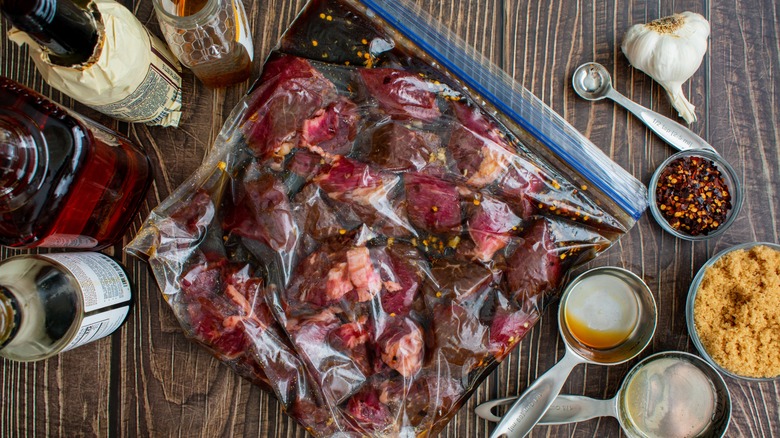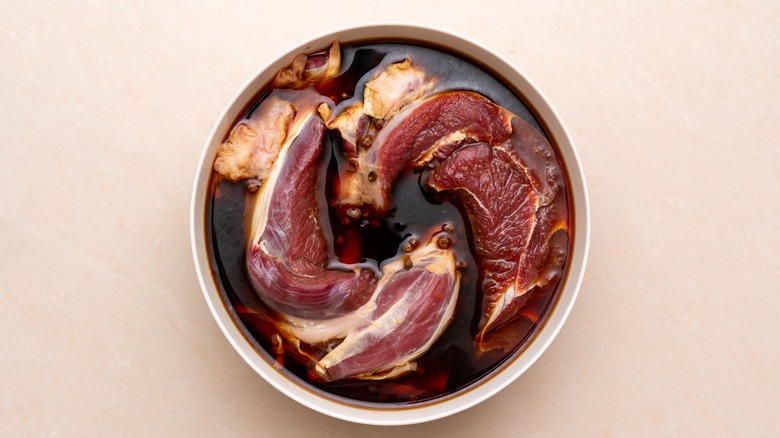The Best Types Of Vinegar To Use For Red Meat Marinades
One of the three key ingredients for a tenderizing meat marinade must be acidic; whether it's citrus, soy sauce, or vinegar. Chef Michael Lomonaco of Porter House in New York City offers a varied menu of prime and aged steaks and Japanese and Australian wagyu beef, and he recommends using different vinegars for marinating red meats. "Beef, lamb, [and] venison may be marinated in some variety of red wine vinegar, Chinese black vinegar, [or] rice wine vinegar," Lomonaco told Tasting Table. Depending on which vinegar you use, it will also impart flavor to the meat.
Red wine vinegar is a popular choice for marinades and vinaigrettes. Made from red wine that's been oxidized in stainless steel vats, the vinegar retains some of the wine's flavor and color. Rice wine vinegar, also known as rice vinegar, is distilled from fermented white, red, or black rice. It's slightly less acidic than red wine vinegar and is favored in Asian cuisine ranging from sushi rice to stir-fries to light salad dressings. Chinese black vinegar get its distinctive malt flavor from fermented grains and is used in Asian cooking for braises and soups or as a condiment.
According to Lomanco, "One of the primary roles of vinegar marinades is to tenderize the meats." Certain inexpensive cuts of steak or venison (which is often soaked in vinegar to reduce its gaminess) benefit the most from marinating. But an important part of the process is the length of time that the meat is in the marinade.
A chef's guide to marinating red meat
"Some marination times may vary from minutes to hours or even days," Lomonaco says. The reason for the time variation is because meat is composed of muscle fibers held together by collagen. The most-worked muscles of the animal have the strongest muscle fibers and connective tissue, which make the meat tough. The acidic component of a marinade creates a chemical reaction that breaks down the muscle fibers and softens the collagen, resulting in a more tender meat. However, if the meat is left in the marinade too long, the acid turns the meat to mush. Thinner cuts of meat, like pork chops, can marinate for 2-24 hours, while denser cuts, like brisket, can marinate for two days, and some game animals need three to five days.
It's possible to marinate red meat for longer with a less-acidic marinade, like a milk bath or buttermilk, but you could also make an effective tenderizing marinade with a simple vinaigrette salad dressing. Avoid marinating meat in a metal bowl and use a glass or plastic container instead or a resealable plastic bag. An important tip about marinating meat that Lomonaco shared is that "all marination should be done under refrigeration," rather than at room temperature, which can lead to bacterial growth. Finally, if you want to use the marinade as a glaze for grilling, the USDA recommends boiling it first to further prevent any food-borne illness.

